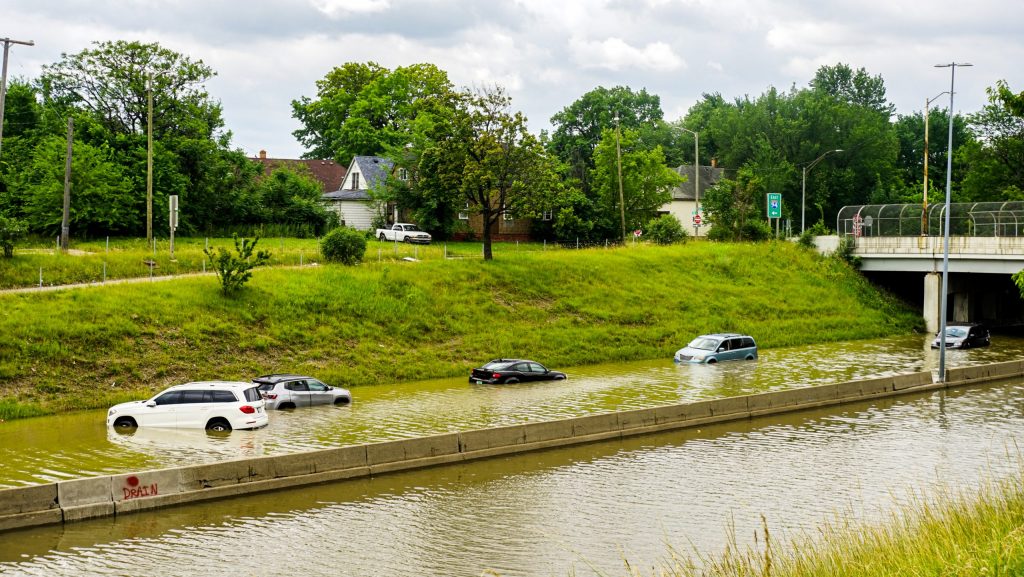Created Equal: How ‘ghost streams’ contribute to Detroit flooding
Madison Ganzak July 10, 2024UM-Dearborn professor Jacob Napieralski joined the show to talk about his research into ghost streams and how they typically pose the greatest flood risk to low-income and minority groups.

A Detroit freeway is shown after a severe flooding event in June 2021.
Over the past decade, the effects of climate change have led to a major increase in flooding events in cities like Detroit that have aging and undersized stormwater infrastructure.
But there’s another hidden contributor to severe flooding in the city: so-called “ghost streams,” or waterways and/or wetlands that previously existed but were either buried underground or filled in to support urban development.
Detroit has removed more than 85% of the total length of streams that existed in 1905, and most major U.S. cities have removed similar numbers of streams. These streams cause a lot of the flooding instability in the city and — perhaps not surprisingly — a disproportionate number of people who live in the areas affected by these streams are low-income and/or people of color.
A recent study from the University of Michigan – Dearborn confirmed that flood risk is disproportionately distributed, with historically redlined neighborhoods bearing the greatest brunt of flood risk. UM-Dearborn professor Jacob Napieralski, lead author of the study, joined Created Equal on Wednesday to discuss his research and its implications.
Subscribe to Created Equal on Apple Podcasts, Spotify, Google Podcasts, NPR.org or wherever you get your podcasts.
Guest:
Jacob Napieralski is a professor of geology at the University of Michigan – Dearborn. He says it is helpful to remind others that humans and rivers have always had a very close partnership, and how the smallest incidents of debris, leaves and branches can plug up drains and become a problem.
“If we plug up those drains, water cannot get into the system, so it ends up in your streets and starts to creep into your property, your basement, your garage,” he said. “I do have issues with that on a number of levels because this is organic material that we’re treating like garbage, and we end up blowing it and it ends up on roads, and it becomes a complex problem.”
Listen to Created Equal with host Stephen Henderson weekdays from 9-10 a.m. ET on 101.9 WDET and streaming on-demand.
